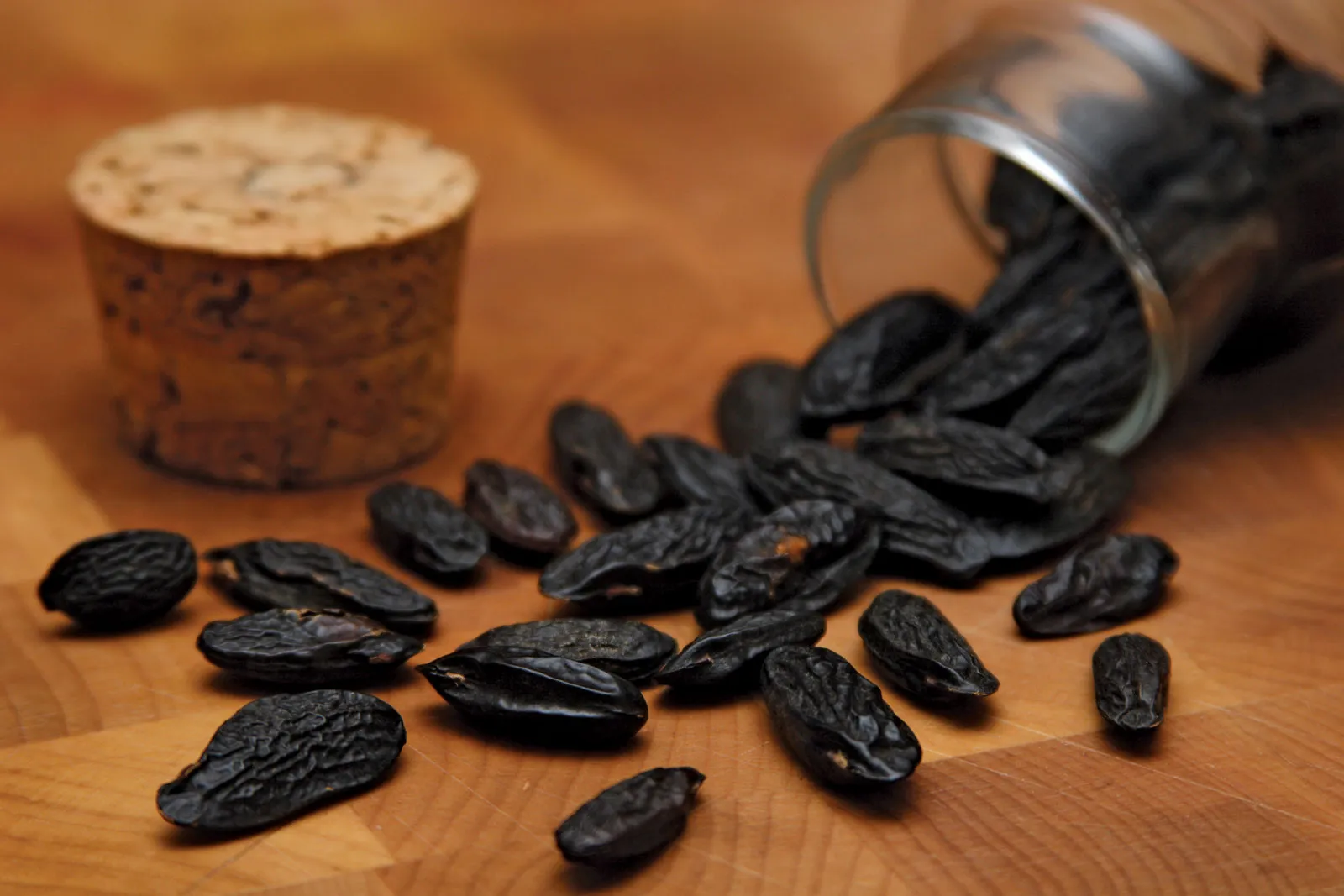- 0086-571-85302990
- sales@greenskybio.com
Coumarin: The Dual Nature of a Common Plant Compound
2025-10-20

Coumarin is a naturally occurring organic compound found across a diverse range of plants, fungi, and marine life. Known for its sweet, vanilla-like or hay-like aroma, coumarin is highly valued in the worlds of perfumery and flavoring. Its discovery as a potent anticoagulant originated from observations of cattle ingesting spoiled sweet clover hay, which led to the development of the blood-thinning medication, warfarin.
Beneath its fragrant charm lies a compound of both remarkable benefits and potential risks. Coumarin is celebrated for its antioxidant, antimicrobial, and anti-inflammatory properties. However, it also poses health challenges, including potential liver toxicity and powerful anticoagulant effects in certain compounds like dicoumarol, necessitating careful medical oversight.
A Compound in Nature and Industry
Present in cassia cinnamon, tonka beans, and sweet woodruff, coumarin is also synthetically produced and utilized in over 300 products, including perfumes, soaps, and cosmetics. While a normal diet is generally safe, large intakes of certain coumarin-rich spices, such as cassia cinnamon, could surpass safety thresholds.
A Journey from Nature to Medicine
The history of coumarin is a fascinating tale of scientific discovery. Isolated in the 1820s by French chemist Nicolas Jean-Baptiste Gaston Guibourt from tonka beans, its name derives from "coumarou," the French term for the tonka bean tree. Its medicinal value was unveiled in North America during the 1920s when cattle inadvertently consuming spoiled sweet clover hay experienced spontaneous bleeding disorders—attributed to fungi transforming coumarin into the potent anticoagulant, dicoumarol. This pivotal discovery facilitated the creation of warfarin, underscoring how a natural compound's potentially toxic mechanisms can be harnessed for medical benefit.
Balancing Benefits and Cautions
Coumarin possesses a range of biological properties. Offering antioxidant protection against free radicals, antimicrobial effects, and reducing inflammation, its potential pharmaceutical applications are under exploration. In nature, coumarins assist plants in defense against predators and pathogens.
Most notably, coumarins exhibit anticoagulant properties. Synthetic derivatives, such as warfarin, are invaluable for preventing blood clots, strokes, and heart attacks. However, while naturally occurring coumarins are not strong anticoagulants themselves, unregulated consumption in high doses poses health risks.
Pervasive in Nature and the Pantry
Coumarin is notably concentrated in tonka beans and sweet woodruff, with cassia cinnamon containing higher amounts than Ceylon cinnamon. It also contributes to the flavor profiles of green tea, celery, peppermint, and other common foods and beverages. Regulatory restrictions limit the use of tonka bean as a food additive, but coumarin's application extends to a wide range of consumer products.
Due to concerns about liver toxicity at high doses, pure coumarin is not widely available as a dietary supplement. The European Food Safety Authority recommends a tolerable daily intake of 0.1 milligrams per kilogram of body weight, which can be exceeded with excessive consumption of cassia cinnamon. For most individuals, a varied diet poses no serious risk, contingent upon conscious moderation.
The complex narrative of coumarin illustrates the intricate relationships between humans and phytochemicals. As a compound that functions as a plant defense, it highlights the delicate balance between nature's potential toxins and medicinal applications. For consumers, the story of coumarin underscores the importance of informed dietary choices, recognizing that "natural" does not always equivalently mean "safe in any quantity."
This article does not constitute medical advice or treatment. Always consult a qualified healthcare provider for personalized guidance related to specific health situations or concerns.
Visit Greenskybio.com, a great article source where you can learn about Supplements and their health benefits, you also can get the latest food Supplements. Green Sky Bio provides the best extracts and supplements. It is a Chinese self-developed brand that is trustworthy! Welcome to email us to inquire about our products.
- ▶ Hesperidin
- ▶ Citrus Bioflavonoids
- ▶ Plant Extract
- ▶ lycopene
- ▶ Diosmin
- ▶ Grape seed extract
- ▶ Sea buckthorn Juice Powder
- ▶ Fruit Juice Powder
- ▶ Hops Extract
- ▶ Artichoke Extract
- ▶ Mushroom extract
- ▶ Astaxanthin
- ▶ Green Tea Extract
- ▶ Curcumin
- ▶ Horse Chestnut Extract
- ▶ Other Product
- ▶ Boswellia Serrata Extract
- ▶ Resveratrol
- ▶ Marigold Extract
- ▶ Grape Leaf Extract
- ▶ New Product
- ▶ Aminolevulinic acid
- ▶ Cranberry Extract
- ▶ Red Yeast Rice
- ▶ Red Wine Extract
-
Mulberry Extract
2025-10-20
-
Fig Extract
2025-10-20
-
Thunder God Vine Extract
2025-10-20
-
Sophora Japonica Flower Extract
2025-10-20
-
Milk Thistle Extract
2025-10-20
-
Epimedium extract powder
2025-10-20
-
Tongkat Ali Extract Powder
2025-10-20
-
Dandelion Root Extract
2025-10-20
-
Horse Chestnut Extract
2025-10-20
-
Angelica sinensis extract
2025-10-20





















